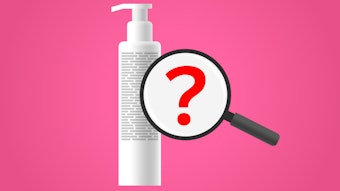Cosmetic manufacturer Lifetech Resources LLC has been issued a warning letter by the US Food and Drug Administration (FDA) for violating the Federal Food, Drug and Cosmetic Act via claims made for three of its eye care products: RapidLash Eyelash Renewal Serum (RapidLash), NeuLash Active Eyelash Technology (NeuLash) and NeuveauBrow Active Eyebrow Technology (NeuveauBrow). According to the letter, these three products are considered as drugs based on claims made as well as the use of the drug isopropyl cloprostenate. These deemed drug products are not approved by the FDA as safe and efficacious; do not include possible side effects or the recommendation to use them under supervision; and are considered as misbranded cosmetics.
Drug Classification
According to the FDA, the company makes drug claims on its website and in its promotional material such as: "After 84 days of daily use, RapidLash induced a significant increase in the length of eyelashes”; “this formula is designed to lengthen and thicken lashes in 30 days"; "your lashes and your eyebrows grow thicker and faster”; “helps promote cell regeneration”; and “helps accelerate the length of the hair shaft, while promoting fuller, thicker and healthier looking brows," among others. Therefore, the agency found the products should be classified as drugs as defined by sections 201(g)(1)(C) of the Act (21 U.S.C. §§ 321(g)(l)(B) and (C)) because they are articles intended to affect the structure or function of the body by inducing eyelash and eyebrow growth.
In addition, the products are formulated with the active ingredient isopropyl cloprostenate, a synthetic prostaglandin analog in the same class of compounds as the active ingredients in FDA-approved drugs indicated to lower intraocular pressure in glaucoma patients and to treat hypotrichosis of the eyelashes. These analogs are known to alter the structure and function of the body; therefore, their use classifies the products as drugs as defined by section 201(g)(1)(C) of the Act (21 U.S.C. § 321(g)(l)(C)).
Unapproved and Misbranded Drugs
The FDA has found that the products are unapproved new drugs in violation of sections 505(a) and 301(d) of the Act (21 U.S.C. §§ 355(a) and 331(d)) and misbranded drugs in violation of section 502 (21 U.S.C. §§ 352) of the act.
Since the FDA has not approved these products as safe and effective under the conditions prescribed, recommended or suggested in their labeling, the FDA also finds the three products to be new drugs, as defined by section 201(p) of the Act, (21 U.S.C. § 321(p)). The FDA noted that the products' use should be supervised by a licensed practitioner, as isopropyl cloprostenate may lower intraocular pressure and other side effects such as ocular irritation, hyperemia, iris color change, macular edema, ocular inflammation and interference with glaucoma therapy. In addition, prostaglandin analogs for ophthalmic use are currently classified as Pregnancy Class C.
The FDA therefore finds the products misbranded due to the lack of directions for use under supervision and also for misleading statements regarding the product’s safety and failure to reveal material facts with respect to consequences that may result from the use of the product. The products bear the label “passed the safety status in the US and EU;” however, according to the FDA, it has not been approved based on safety and efficacy.
Misbranded Cosmetics
Finally, the FDA finds that the products are misbranded cosmetics under the section 602(a) of the Act (21 U.S.C. § 362(a)) and that NeuLash and NeuveauBrow are adulterated cosmetics under section 601(a) of the Act (21 U.S.C. § 361(a)). The products are misbranded cosmetics for their failure to disclose facts materials with respect to consequences. In addition, a cosmetic is adulterated if it bears or contains any poisonous or deleterious substance that may render it injurious to users under the conditions of use prescribed in the labeling thereof, or, under such conditions of use as are customary or usual.
The FDA has advised the company that it has 15 working days to notify the administration in writing as to what actions will be taken to address the violations. Failure to promptly correct these violations may result in legal action without further notice, including, without limitation, seizure and injunction. Other federal agencies may take this warning letter into account when considering the award of contracts.
Actions such as these are yet another reminder to product developers that claims are a crucial component in the cosmetics R&D process and must carefully be considered. Setbacks such as these can fuel arguments from activist groups concerned over a self-regulated industry. However, these incidents also illustrate to such groups that at some level, there is a watchful eye looking at the messages being presented to consumers.










